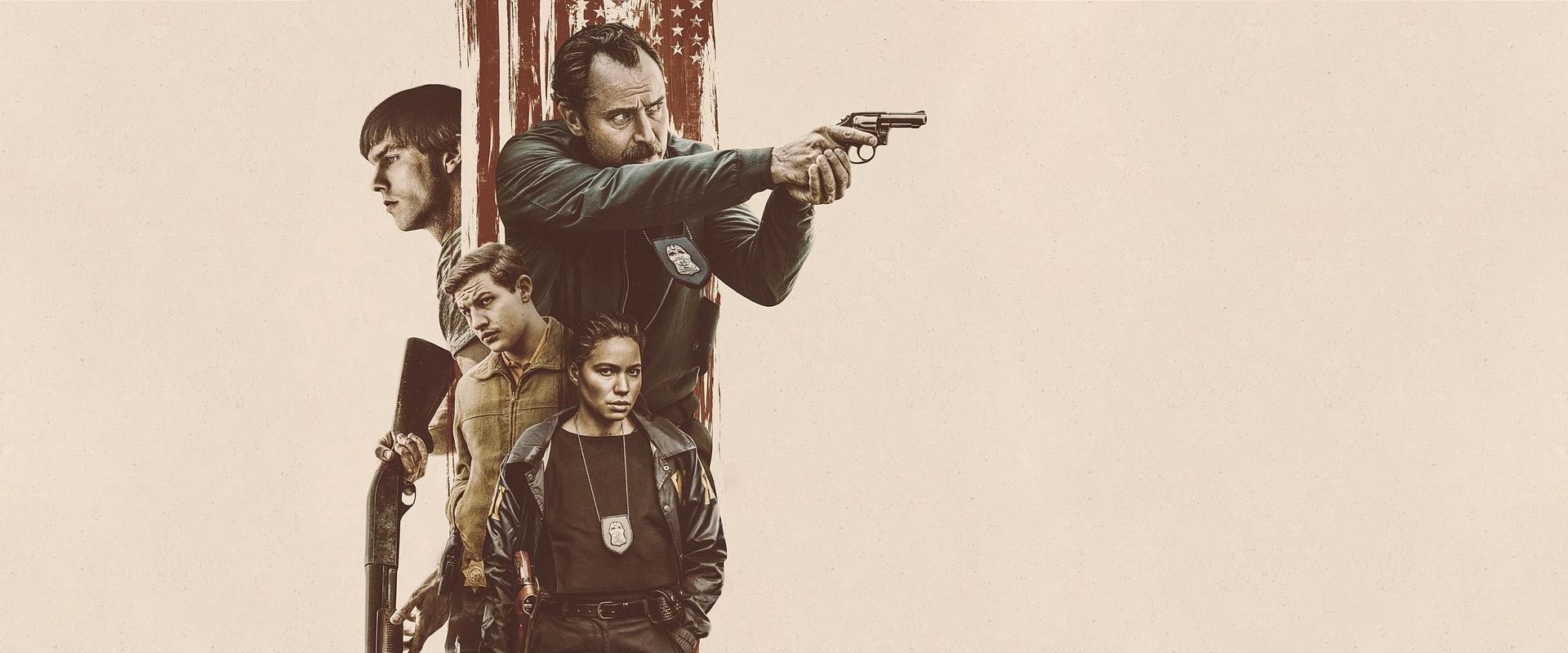Leave it to Justin Kurzel—a director who swoops into American blood and folklore with the sensibility of a poet scavenger—to dig up one of the country’s ugliest buried skeletons and rattle it until the audience feels the bones knocking inside their own skins. “The Order”—which bridges the gap between lawman melodrama and social horror show—doesn’t snuggle up to its true-crime credentials for a moment. It’s not the sort of drama that leaves you with your hand over your heart in admiration for the FBI, or cleaning your nails on the armrest, coolly detached. No, this is a movie that comes after you, hounding your conscience with every bark of a German shepherd and every flicker of fluorescent supermarket nightmare.
Adapted by Zach Baylin from The Silent Brotherhood, this is a thriller that’s less interested in the tick-tock of plotting than in the acidic seep of ideology and dread. If you go expecting that old procedural nap, you’ll be rudely rattled awake: here, the action doesn’t so much accelerate as fester, scene by scene, like a bruise that spreads beneath the surface.
Let’s start at the center. Jude Law, finessing a whisky-worn Idaho accent as FBI agent Terry Husk, doesn’t give you the luxury of a knight in shining windbreaker. His performance is all tremor and residue, worn-smooth edges chipped by compromise—he’s a man shouldering not only the weight of a federal badge but the entire swampy inertia of 1980s America. You feel his heart thumping in his throat every time he steps into a humming diner or braves a backwoods rally. Law taps into the private moral churn of a man forced to hunt his own countrymen, and doesn’t indulge us with the easy comfort of righteousness. I got pulled along by his voice—graveled down and scoured raw—until the difference between his fatigue and mine became academic.
And then there’s Nicholas Hoult, slithering through the film's arteries as Bob Mathews, the pied piper of American decline: a man so frighteningly plausible that, at times, I wanted the camera to look away for mercy. Yet, let’s be honest, there are moments when Hoult’s commitment wavers, the engine slips out of gear. He exudes that slick menace but never quite locks into the feral, almost evangelical zeal that a true leader of the Silent Brotherhood would need to recruit the lost, the angry, the adrift. Still, even with the dial notched down, he radiates just enough current to keep you on edge, hand reaching for the light switch.
But the revelation, the one who bubbles up through the murk, is Tye Sheridan as Jamie Bowen—his blue-collar idealism battered and muddied but refusing to admit defeat. Sheridan’s performance hums with the energy of a man stuck in the undertow of moral collapse: you see the agony flicker behind his eyes, a struggle to wrestle decency out from under history’s junk pile. There are sparks between him and Law—real chemistry that smells of cigarettes, old coffee, and something like hope—and I wanted far more of it, as if the film itself were scared of the depth it might discover.
And then there’s Jurnee Smollett, blazing ferocity and fatigue as the FBI’s Joanne Carney, dragging her empathy behind her like a wounded leg. Smollett brings the room to attention—a tightwire act balancing vulnerability and bite. The supporting cast, from Alison Oliver's taut nerves to Marc Maron's soiled skepticism, churns the air, fleshing out a setting haunted by frustration and futility. But the real missing limb is the further untapped possibility in Sheridan’s role—a character who could (who should) have shouldered more of the film’s battered soul.
Kurzel, though, approaches the narrative like a surgeon operating on a memory rather than a wound. He floods the frame with the sickly pallor of flickering lights and the soundtrack of daily dread—dogs barking, children wailing, radios muttering prayers to nobody. This isn’t just atmosphere: it’s indictment. It’s history refusing to smile for the camera.
And it’s here that I ached for Baylin’s script to probe deeper into that infamous Silent Brotherhood—the cultish glue that binds lost men into family, somewhere between church service and war council. There are whispers of ritual, glances exchanged across the shadowy kitchens and muddy rallies, but the movie’s at its sharpest when it dares to stare, unblinking, at the process by which lonely boys become brothers in hate. That’s the stuff of panic, and it leaves you shivering, blinking neon in your eyes, long after you’ve left the theater.
The writing doesn’t waste time or air. The dialogue pops—sometimes crackling, often quietly wounded, never afraid to stall on an unsayable word. There’s no perfumed language here and, god, it’s a relief. But you wish—don’t you?—for a few leaps from the merely realistic to the lyrically damning: a line or two that would cut flesh, something that sings the plague right into your bloodstream. Still, at least you’re spared the creaky melodrama of so many well-meaning “issue thrillers.”
In the end—if there is an end, if there can be one—you walk out feeling filthier, more sober, maybe even smarter. The Order is one of those rare thrillers that doesn’t scrub up the bad or sell you a diet-plate redemption. It wants to rub your face in American rot, and it does. Is it fun? Not remotely. Is it good? In the way a cold bath can jolt the spirit, yes. The truth is, we need these films. Not for affirmation, lord knows, but for the sickness that leads to clarity: a way of remembering what our American myths so frantically forget.
Go prepared: the movie won’t let you off with a tidy answer. You’ll burn with questions—about faith, loyalty, and the seductive gravity of belonging—and that slow ache is the real triumph here. In a country that would rather bleach its history, The Order is one hell of a bracing, unsparing antidote to amnesia. You may emerge shaken, maybe even chilled, but you won’t leave unchanged. Isn’t that—finally—the only order that matters?


